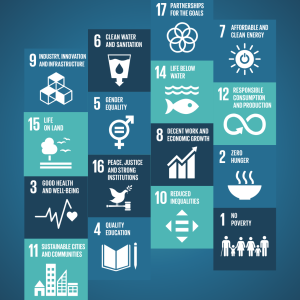Indikatoren in dieser Dimension analysieren, inwieweit Migrantinnen und Migranten hinsichtlich des Zugangs zu grundlegenden sozialen Diensten wie Gesundheit, Bildung und soziale Sicherheit den gleichen Status wie Bürgerinnen und Bürger haben. Es beschreibt die Rechte von Migrantinnen und Migranten auf Familienzusammenführung, Arbeit, Aufenthalt und Staatsbürgerschaft. Die Ratifizierung der wichtigsten internationalen Konventionen fällt ebenfalls in diesen Bereich.main.
Indikatoren in dieser Dimension bewerten die institutionellen, rechtlichen und regulatorischen Rahmenbedingungen der Länder im Zusammenhang mit Migrationspolitik. Dimension 2 beinhaltet auch das Vorhandensein von nationalen Migrationsstrategien, die mit Entwicklungspolitik und -ansätzen im Einklang stehen, sowie die institutionelle Transparenz und Kohärenz in Bezug auf Migrationsmanagement. In diesem Bereich wird auch untersucht, inwieweit Regierungen Migrationsdaten erheben und verwenden.
Diese Dimension konzentriert sich auf die Bemühungen von Ländern, in migrationsbezogenen Fragen mit anderen Staaten und einschlägigen nichstaatlichen Akteuren, einschließlich Organisationen der Zivilgesellschaft und des Privatsektors, zusammenzuarbeiten. Kooperation kann zu Verbesserungen der Regierungsführung führen, indem Standards angeglichen und angehoben, der Dialog intensiviert und Strukturen der Bewältigung von Herausforderungen geschaffen werden.
Diese Dimension umfasst Indikatoren für die Politik der Länder zur Steuerung des sozioökonomischen Wohlergehens von Migrantinnen und Migranten, z.B. die Anerkennung der Bildungs- und Berufsqualifikationen von Migrantinnen und Migranten, Bestimmungen zur Regelung der Studentenmigration und das Bestehen bilateraler Arbeitsabkommen zwischen Ländern. Die Indikatoren konzentrieren sich gleichermaßen auf Maßnahmen und Strategien im Zusammenhang mit dem Engagement der Diasporamitglieder und den grenzüberschreitenden Geldtransfers von Migrantinnen und Migranten
Diese Dimension befasst sich mit der Art und dem Grad der Bereitschaft von Ländern, wenn sie mit Mobilitätsdimensionen von Krisen konfrontiert sind, die entweder mit Katastrophen, der Umwelt und/oder Konflikten zusammenhängen. Die Fragen werden verwendet, um die Prozesse für Staatsangehörige und Ausländer sowohl während als auch Katastrophen zu ermitteln, einschließlich der Frage, ob humanitäre Hilfe für Migrantinnen und Migranten genauso verfügbar ist wir für Bürgerinnen und Bürger.
Diese Dimension analysiert den Ansatz der Länder zum Migrationsmanagement bezüglich Grenzkontroll- und Grenzschutzmaßnahmen, Zulassungsvoraussetzungen für Migranten, Vorbereitung und Flexibilität bei erheblichen und unerwarteten Wanderungsbewegungen sowie die Bekämpfung des Menschenhandels und des Menschenschmuggels von Migrantinnen und Migranten. Es werden auch die Bemühungen und Anreize zur Unterstützung der Integration der zurückkehrenden Staatsbürgerinnen und -burger bewertet.
This country snapshot describes examples of well-developed areas of the Republic of Turkey’s (hereafter referred to as Turkey) migration governance structures and areas with potential for further development, as evaluated through the six domains of the Migration Governance Indicators (MGI). These address migrants’ rights, a “whole-of-government” approach, partnerships, socioeconomic well-being of migrants, the mobility dimensions of crises, and safe and orderly migration.
Click the icons on the wheel to explore the key findings.
The Migration Governance Indicators (MGI) initiative is a policy-benchmarking programme led by the International Organization for Migration (IOM) and implemented with the support of the Economist Intelligence Unit. Funding is provided by IOM Member States.
Migration Governance: Examples of well-developed areas
- The Turquoise Card has been introduced and new arrangements have been made to facilitate the employment of foreigners, including international students. Moreover, the Law on International Labour Force No. 6735 exempts certain categories of foreign workers from work permit procedures and establishes that foreign workers can take on independent work provided that they meet certain conditions
- According to Article 42 of the Constitution, no one can be deprived of the right to education: this includes foreigners independently from their legal status.
- Syrians under Temporary Protection status can benefit from family reunification.
Areas with potential for further development:
- Even when migrants have a work permit, they may face some restrictions to labour market access. Certain activities can be performed exclusively by Turkish nationals.
Migration Governance: Examples of well-developed areas
- The Directorate General of Migration Management (DGMM) under the Ministry of Interior has the mandate to develop migration policies.
- The Migration Policies Board carries out secretariat services for the DGMM. The Board develops Turkey’s migration policies and strategies and follows up on their implementation. It also invites other relevant ministries, national or international institutions and organizations and representatives of non-governmental organizations to specific meetings.
- The DGMM collects and publishes on its website data related to entry/exit, residence permits, irregular migration, international and temporary protection, victims of human trafficking, readmission and removal centres administered by GDMM.
- The Ministry of Labour and Social Security (MLSS) and the Turkish Employment Agency (ISKUR) produce statistics on foreigners’ participation in the labour market.
Areas with potential for further development:
- The national migration strategy has not been updated in light of recent large-scale immigration.
- The 2014-18 National Development Plan (NDP) only mentions the intention to develop an effective migration management system that supports the economy. The NDP does not include any other mention of migration.
The 2005 National Action Plan contains no substantial discussion about the impacts of migration on the local economy.
Migration Governance: Examples of well-developed areas
- Turkey is part of regional and global migration dialogues. For instance, the Budapest Process, The Prague Process, the Almaty Process and the Bali Process.
- The country also participates in bilateral migration negotiations, discussions and consultations, in particular with EU member states.
- Turkey currently has bilateral social security agreements with 28 countries, and bilateral labour agreements with 12 countries.
- Turkey is part of the executive committee of UNHCR and a member state of IOM.
- Turkey also formally involves members of the diaspora in agenda setting and implementation of migration policies.
Areas with potential for further development:
- Turkey is not part of any regional agreements promoting labour mobility.
Turkey and the EU are discussing a visa liberalisation road map.
Migration Governance: Examples of well-developed areas
- The Turkish Employment Agency (İŞKUR) conducts a labour market needs analysis, which include statistics on open occupations.
- Foreign students attending an associate or undergraduate programme can apply for a work permit after their first year, and they can work on a part time basis.
- Turkey is part of the G20 plan to facilitate remittances flows and is exploring how to increase the efficiency of remittances services.
Areas with potential for further development:
- Generally at State Universities, foreign nationals pay two to three times the fees paid by Turkish nationals and there are no quotas on foreign students.
Migration Governance: Examples of well-developed areas
- Turkey has a strong and coherent disaster management system as well as laws and plans that aim at supporting both citizens and migrants, including conditional refugees.
- Turkey’s disaster risk reduction strategy includes some provisions that address the displacement impacts of disasters.
- The country has measures to make exceptions on the immigration procedures for migrants whose country of origin is experiencing a crisis.
Areas with potential for further development:
Turkey’s emergency communication systems do not take into account the specific vulnerabilities of migrants and conditional refugees. Turkey’s Disaster and Emergency Management Authority (AFAD) provides translators to assist in health card provision but has not been able to fully meet the scale of demand since the massive influx of Syrian refugees.
Migration Governance: Examples of well-developed areas
- Turkey has a system to monitor visa overstays: the electronic visa application system is integrated with the Police Intranet System, PoINet.
- The government runs a website outlining visa options. There is a formal mixed online and paper system for applying for specific types of visa prior to arrival.
- The government has an inter-agency national commission responsible for countering human trafficking. Turkey also collects and publishes information annually on counter-trafficking activities.
- Turkey continues the development of the Assisted Voluntary Return and Reintegration (AVRR) programme to support stranded and irregular migrants in returning to their countries of origin and reintegrate sustainably in their home communities.
Areas with potential for further development:
A programme for Turkish citizens living abroad that focuses on facilitating migrant reintegration in the home country could be created.



